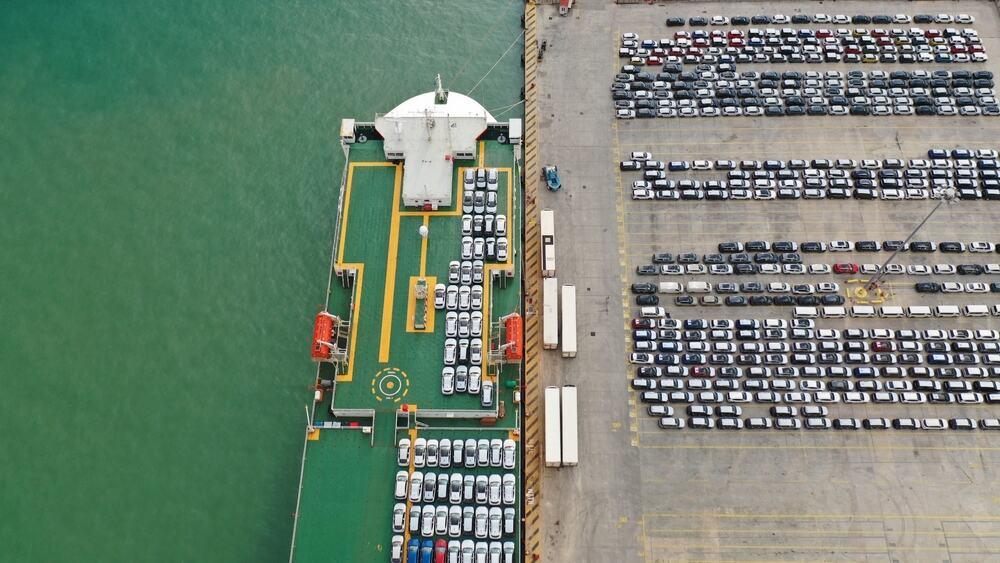
You can have a foreign car in the UK, but it has specific regulations. A foreign-registered vehicle can be used for up to six months in 12 months, provided it is fully taxed in its home country. After this period, to continue using the car, it must be registered with the DVLA, replacing the registration with a UK one. Autos not meeting UK standards or deemed hazardous may be subject to removal.
Bringing a foreign car into the UK involves navigating regulatory requirements to ensure the vehicle meets the country's safety and environmental standards. Whether the car comes from within the European Union (EU) or elsewhere, it must pass the Individual Vehicle Approval (IVA) scheme to be driven legally on UK roads. This process ensures that all autos adhere to the necessary emissions and safety standards regardless of origin. Understanding these requirements is crucial for anyone considering moving or relocating their truck to the UK, ensuring a smooth transition and legal compliance.
Understanding the Vehicle Importation Process
UK car importing requires many procedural steps, including safety, environmental, and tax and duty issues. Moving with foreigners is easier when you know these protocols. This includes knowing vehicle evaluation, tariffs and levies, and customs processes to ensure lawful and easy imports.

The UK's HMRC must first be informed of the import. The car must also be approved. Individual Vehicle Approval (IVA) and Mutual Recognition are the main approval methods for non-type-approved automobiles. Route selection depends on permission for the vehicle type in its home country. This affects automobile registration in the UK, making it crucial.
The Legalities of Owning a Foreign Car in the UK
Foreign car ownership in the UK has its laws. These rules are essential for UK road safety. Vehicles must meet exhaust emission, illumination, and safety standards. Following these rules reduces accidents and avoids local government complications.
Importing a vehicle requires a lot of paperwork to prove its authenticity and legality. The owner, address, origin, and destination of the car must also be recorded. Understanding and meeting these regulations is difficult but necessary, highlighting the need for a reputable, experienced moving and relocation service.
Insurance Policies
Covering an imported 4-wheeler in the UK can be difficult. The vehicle's UK specs may be unusual. Since insurance companies consider component replacement, vehicle upkeep, and resale value, coverage can cost more.
The UK's foreign automobile laws may demand further investigation to get an appropriate policy for your imported car. Some moving and relocation services help users comply with these rules. These services collaborate with imported automobile insurance brokers. They provide extensive information to ensure your car meets legal and insurance requirements.

Frequently Asked Questions
The UK has specific regulations regarding the use and ownership of foreign vehicles. These include compliance with safety and environmental standards, proper registration, tax payment, and obtaining a valid MOT certificate.
Importing a vehicle into the UK involves several steps. First, you must notify the HM Revenue and Customs (HMRC) within 14 days of the vehicle's arrival. Then, you have to pay any VAT and duty that apply. Once paid, you must get the car approved for use on UK roads through the Individual Vehicle Approval (IVA) scheme or via Mutual Recognition if your car was previously registered in another EU country. Finally, you register and tax the vehicle with the DVL.
Legalities of owning a foreign car in the UK include ensuring the vehicle complies with UK safety and environmental standards, paying necessary taxes and duties, obtaining a valid MOT certificate, and registering the car with the DVL.
UK insurance companies categorize imported cars into two types: grey imports and parallel imports. Grey imports are vehicles brought into the UK from outside the EU, and they may be more expensive to insure due to parts availability and potential mechanical complexities. Parallel imports are cars purchased in EU countries, and they are typically more accessible and cheaper to insure as they meet similar safety and environmental standards to those in the UK.
Several factors can influence the cost of insuring an imported car in the UK. These include the type of import (grey or parallel), the make and model of the vehicle, its age and value, the availability of parts, any modifications made to the car, and the driver's age, driving history, and intended use of the vehicle.






 Share on Facebook
Share on Facebook Share on LinkedIn
Share on LinkedIn Share on Twitter
Share on Twitter




 Google
Google  Instagram
Instagram  Trustpilot
Trustpilot 



